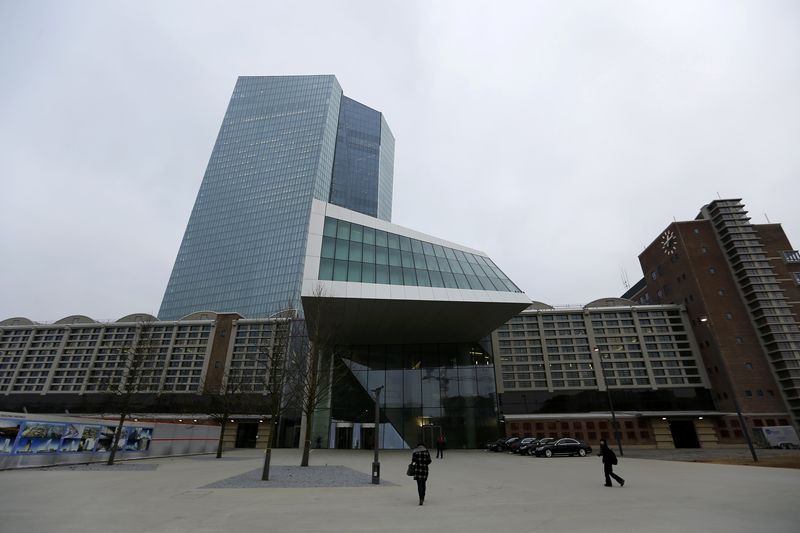By Geoffrey Smith
Investing.com -- Europe’s stock markets dealt better than might have been expected with another crushingly negative set of business surveys on Thursday, trading roughly mixed thanks to fresh support measures from both government and – more importantly – the European Central Bank.
Italian, Spanish and Portuguese banks were among the biggest winners after the ECB tweaked its rules in an emergency virtual meeting on Wednesday, to ensure that it can still lend to banks even if their sovereign government’s credit rating is downgraded to junk. That prospect most immediately affects Italy in particular, after Prime Minister Giuseppe Conti unveiled plans for 50 billion euros more in spending this year.
BBVA (MC:BBVA) stock was up 4.4%, while Bankia (MC:BKIA) stock, Caixabank (MC:CABK) stock and Sabadell (MC:SABE) stock were all up by over 2%. Italian heavyweights Intesa Sanpaolo (MI:ISP) and Unicredit (MI:CRDI) made smaller gains of 1% each, the latter suffering from a barrage of price target reductions after making a 900 million-euro ($970 million) provision for bad loans on Tuesday. The benchmark Stoxx 600 was up 0.2% by 5:20 AM ET (0920 GMT), with the Italian FTSE MIB and the Spanish IBEX 35 outperforming.
Purchasing manager surveys for April, released on Thursday, made clear how badly such provisions will be needed. Forecasts were for the worst European PMIs ever – and the actual numbers were worse than the forecasts across the board, with services hit hardest of all.
The eurozone composite PMI fell to 13.5 from 29.7, while the services PMI fell to 11.7 from 26.4.
“The eurozone economy didn’t just fall flat on its face at the start of Q2, it head-butted the pavement,” said Claus Vistesen, chief eurozone economist at Pantheon Macroeconomics.
Vistesen argued that the underlying reality may not be as bad as the numbers suggest, in that employment subsidy schemes across the region mean that the jobless rolls won’t rise as fast as the numbers suggest. On the downside, he argued, respondents’ were even more gloomy about the outlook for the next 12 months than they were in March: that’s at odds with the sharp relief rally seen in European stocks in the last month.
“The success of governments’ efforts to re-open economies in the next two-to-three months will determine which of the stories that are right,” Vistesen said.
German Chancellor Angela Merkel, whose government has had arguably the best record in containing the outbreak in Europe, told the Bundestag on Thursday that ““we are not living in the final phase of the pandemic, but still at the beginning,” while Spain, which has been at the other end of the pain scale, extended its lockdown until May 9th on Wednesday.
